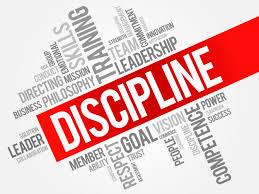Team Management Skills: The Core Skills Needed to Manage Your Team
Curated from: mindtools.com
Ideas, facts & insights covering these topics:
8 ideas
·4.78K reads
20
1
Explore the World's Best Ideas
Join today and uncover 100+ curated journeys from 50+ topics. Unlock access to our mobile app with extensive features.
The Difference Between Managers And Leaders
Leadership involves creating a compelling vision of the future, communicating that vision, and helping people understand and commit to it.
Managers, on the other hand, are responsible for ensuring that the vision is implemented efficiently and successfully.
190
906 reads
The Importance Of Delegation
There's only so much that you can achieve working on your own, that's why it's important to delegate effectively. To successfully delegate:
- Explain what your team's role and goals are. Or even formalize it in a team charter, which can also be useful for keeping the team on track.
- Think about the skills, experience and competencies within your team, and start matching people to tasks.
174
630 reads
Motivating Your Team
Whatever approach you prefer to adopt, you also need to bear in mind that different people have different needs when it comes to motivation.
One size does not fit all. Some individuals are highly self-motivated, while others will under-perform without managerial input, and you need to be able to handle both.
172
623 reads
Developing Your Team
Teams are made up of individuals who have different outlooks and abilities, and are at different stages of their careers. Some may be challenged by the tasks you assign and need help while others may be unchallenged, and may be looking for opportunities to stretch their skills.
It's your responsibility to develop all of your people and doing so makes you a manager people aspire to work for. The most effective way of developing your people is to ensure that you give regular feedback to members of your team.
173
513 reads
Communicating With Your Team
Meetings of all kinds, and regular ones in particular, are notorious for wasting people's time, so it's well worth mastering the skill of running effective meetings.
Being in charge, it’s easy to assume you know what others are saying, or that listening isn’t important and that your solutions are better. But learning active listening is key as it allows early detection problems, avoids costly misunderstandings, and builds trust within their teams.
162
498 reads
With People Outside Your Team
- Understand fully what your boss wants from you and your team so you'll be better able to meet with their approval.
- Ask your boss to coach or mentor you. You can usually learn a lot from him, but he may not be proactive about offering this. Think through things as far as you can before you approach them.
- Look after your team and protect it from unreasonable pressure. Learn skills like assertiveness and win-win negotiation, so you can turn work away or negotiate additional resources.
- Manage interactions with other groups. Use stakeholder analysis to identify groups relevant to you as well as what they want and what they offer.
151
428 reads
Managing Discipline
When you are faced with potential discipline issues, take time to gather information about the situation, decide what you're going to do, and act. Discipline issues often get worse and rarely go away by themselves, bringing conflict to the team.
- Does the issue affect the quality of the employee's deliverable to the client?
- Does the issue adversely impact the cohesiveness of the team?
- Does the issue unnecessarily undermine the interests of other individuals in the team?
182
662 reads
Traps To Avoid
- Thinking your current job knowledge and technical skills are enough to be a manager. Good management and people skills can be more important than technical skills.
- Failing to consult regularly with your boss, in an attempt to show that you can cope on your own.
- Approaching your boss without having thought a problem or its solutions through.
- Failing to assess what your customers want from you and your team.
- Using your authority inappropriately or not in the interests of the organization.
167
525 reads
IDEAS CURATED BY
Aubree F.'s ideas are part of this journey:
Learn more about personaldevelopment with this collection
Conflict resolution
Motivating and inspiring others
Delegation
Related collections
Similar ideas
9 ideas
9 Lessons for the First-Time Manager
99u.adobe.com
6 ideas
5 Keys to Setting and Managing Team Expectations (Infographic)
blog.hubstaff.com
10 ideas
The 10 Golden Rules of Effective Management
entrepreneur.com
Read & Learn
20x Faster
without
deepstash
with
deepstash
with
deepstash
Personalized microlearning
—
100+ Learning Journeys
—
Access to 200,000+ ideas
—
Access to the mobile app
—
Unlimited idea saving
—
—
Unlimited history
—
—
Unlimited listening to ideas
—
—
Downloading & offline access
—
—
Supercharge your mind with one idea per day
Enter your email and spend 1 minute every day to learn something new.
I agree to receive email updates








